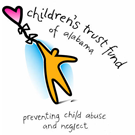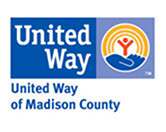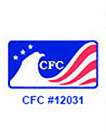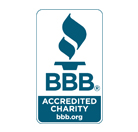- Beyond Basic Forensic Interviewing Courses
- Traveling to Huntsville
- FAQs
- Developmental Pathways Blogs
2023 Beyond the Basics Courses:
Listed below are the courses available in 2023. Each section provides a brief course description, information on who should attend, course dates and locations, and a link for individual course registration.
Course Description:
Conducting an effective forensic interview (FI) of a child is a complex task that requires an understanding of children’s memory, linguistic, communicative, and metacognitive capacities. It also includes the use of appropriate questioning strategies which maximize a child’s recall memory. These concepts are introduced and practiced during initial forensic interview training.
Faced with diverse children and complicated cases, interviewers often need help implementing the lessons learned in basic forensic interview training in a nuanced and thoughtful manner. Mastering the use of appropriate questioning strategies and legally defensible social support requires additional training beyond an initial one-week class.
This course deepens interviewers’ understanding of effective questioning strategies, the provision of sensitive and targeted social support and provides extended opportunities to practice the implementation of skills and receive timely feedback. Participants will also receive specific preparation in interview evaluation.
This virtual, non-protocol-specific, foundational skill-building training consists of experiential components, readings, web-based modules, and interview exercises.
Who should attend?
This training is recommended as the first follow-up training for newer interviewers, as well as for interviewers who would like to refresh and update their skills. Completion of nationally recognized forensic interviewing training is required.
Trainer: Andra Chamberlin, MA
Dates: April 18-20, June 27-29. Head to the Registration Page to find your training and sign up.
This training is offered virtually.
Course Description:
Forensic interviewing (FI) is a highly complex, interactive, and challenging process requiring initial training, practice-focused supervision, and ongoing education. Effective interviewers must possess a broad repertoire of skills. Additionally, forensic interviewers should be able to develop a critical thinking framework to meet both the needs of the child and the investigative team. This research-informed, non-protocol-specific course will focus on essential skill development and strategies for effectively applying critical thinking tools.
This interactive training will utilize demonstration videos, experiential activities, lectures, and guided reflection and discussion. Forensic interviewers are asked to bring case examples to be used to apply the principles being introduced.
Who should attend?
This training is specifically designed for experienced interviewers responsible for initial forensic interviews of children working with a multidisciplinary team. It is recommended that the interviewer have at least two years of interviewing experience and have completed nationally-recognized FI training.
Trainer: Linda Cordisco Steele, MEd LPC
Dates: October 10-12. Head to the Registration Page to find your training and sign up.
This training is only offered on site in Huntsville, AL.
Course Description:
Research in child maltreatment, memory, suggestibility, and child development has led to a consensus regarding the guidelines to be followed when conducting a forensic interview. Interviewers know how to adapt their approach to the child in the room and formulate questions adapted to a child’s level of language acquisition and cognitive development.
While there are numerous challenges when interviewing reluctant children, there are also challenges that must be addressed and managed when interviewing highly narrative children. The appropriate use of invitations, breadth and depth questions, specific wh-questions, and yes/no questions by interviewers can provide a framework for understanding and moving through a child’s narration. In addition, many children may have experienced multiple events of maltreatment which often results in the blending of details across incidents. Active listening and utilizing provided cues and leads can provide investigators with a greater understanding of the child’s lived experiences and assist with the details required during a civil or criminal investigation.
Participants will have an opportunity to increase skills in implementing best practice narrative questioning strategies with highly narrative children while also learning to elicit and manage the flow of information needed by the investigative team.
Who Should Attend:
This training is appropriate for forensic interviewers who have completed a nationally recognized forensic interview training and want to increase their ability to obtain information from children that reflect evidence-based, best-practice questioning of child witnesses.
Trainer: Andra Chamberlin, MA
Dates: February 28 and July 20. Head to the Registration Page to find your training and sign up.
This training is only offered virtually.
Course Description:
This course is an introduction to a supervision model for child forensic interviewers. In addition to the basic principles and goals of supervision, it will offer strategies for developing an effective supervision process tailored to the resources of the individual children’s advocacy center (CAC) and community.
Who Should Attend?
This training is appropriate for experienced child forensic interviewers wanting to develop a supervision process in their CAC and executive directors or state chapter representatives interested in establishing a regional or statewide supervision program. Completion of nationally-recognized forensic interviewing training is required.
Trainer: Linda Cordisco Steele, MEd LPC
Dates: February 15 and August 9. Head to the Registration Page to find your training and sign up.
This training is only offered virtually.
Course Description:
A forensic interview of a preschool child brings unique challenges. Cognitive and linguistic abilities are newly emerging for children in this age group. While preschoolers may appear verbal and competent within their familiar everyday environment and conversations, they have little to no experience providing personal autobiographical information to an unfamiliar adult in an unfamiliar setting. Separation from their caregiver can be unsettling for the very youngest children, especially those with no prior daycare or preschool experience.
Greater knowledge of developmental abilities and limitations, as well as patience and willingness on the interviewer's part to adapt language and limit expectations, is required with this age group. Recommendations for adjusting language and questioning approaches will be provided, as well as an adaptation of interview protocols. Demonstration interviews will be used throughout the training.
Who should attend this training?
This training is appropriate for forensic interviewers at all levels who want to increase their ability to interview preschool children in a developmentally sensitive and planned way. Completion of nationally recognized forensic interviewing training is required.
Trainer: Kim Madden, MEd LCMHC
Date: September 26-28. Head to the Registration Page to find your training and sign up.
This training is only offered on-site in Huntsville, AL.
Course Description:
Forensic interviewers encounter a variety of forms of reluctance in child witnesses. A forensic interview is challenging for many children as the environment and forensic interviewer are unfamiliar, and the topic of discussion can be cognitively and emotionally demanding for the child. There is no single manifestation of reluctance in children and no single antidote. The degree of reluctance occurs along a continuum ranging from mild anxiety to more pronounced resistance and high-stress levels for the child. Additionally, reluctance appears at different places in the interview process, and child witnesses communicate their reluctance in their own unique and personal way.
This training will explore the internal and external contributors to children’s reluctance and offer a “toolbox” of supportive responses and adaptations that may be helpful. Case examples and demonstrations through recorded interviews will be used during the training. Participants are invited to bring case examples for discussion.
Who should attend:
This training is appropriate for forensic interviewers at all levels who want to increase their ability to provide support and gain information from reluctant children in a sensitive and planned way. Completion of nationally-recognized forensic interviewing training is required, and completion of the Beyond Basic Forensic Interviewing: Increasing Skill in Forensic Interviewing of Children course is recommended.
Trainer: Kim Madden, MEd LCMHC
Check back later for upcoming dates!
Course Description:
As many child advocacy centers (CAC) employ child forensic interview specialists or choose to develop a small group of investigator interviewers, there is a growing need for a set plan for building skills and increasing the competency and resilience of their forensic interviewers. Supervision, a long-standing tradition in medicine and mental health, is an established relationship between a senior practitioner and a more junior partner to provide feedback, guidance, support, and ongoing education toward developing a specialized skill.
An experienced forensic interviewer may have much to offer a newly developing forensic interviewer but may need more education or direction to increase their knowledge about supervision or develop skills and abilities to provide supervision in a structured and intentional way.
Principles of supervision will be presented and discussed, along with core values and practices around effective supervision. A model for assessing current forensic interviewers' skill level and developmental needs will be introduced. In addition, suggestions for continual growth and support to promote resiliency and longevity, and excellence in interviewing will be discussed.
Who should attend?
This training is appropriate for experienced forensic interviewers who want to develop or strengthen a supervision program for forensic interviewers within their CAC, state, or region. Completion of nationally-recognized forensic interviewing training is required.
Trainer: Linda Cordisco Steele, MEd LPC
Date: November 28-30, 2023. Head to the Registration Page to find your training and sign up.
This training is only offered on-site in Huntsville, AL.
Course Description:
The forensic interview (FI) of a child is an essential component of any investigation, with an emphasis given to providing a timely initial response and the provision of information and support throughout the process. Attention has historically been paid to minimizing the number of times a child is questioned, especially avoiding duplicative interviews.
Forensic interviewers, as well as law enforcement and child protection investigators, recognize the shortcomings of a “one and done” approach in interviewing a subset of children. Reasons might be child-specific (shyness in a new situation, communication challenges, fatigue, reluctance to talk about difficult topics) or case-related (multiple episodes of abuse or multiple forms of victimization, etc.). Research is informative regarding the cases most appropriate for more than one interview session and gives guidance on how to proceed. We will explore a decision-making process for selecting appropriate cases, case planning, and adaptations.
Who should attend?
This training is most helpful for interviewers who have developed basic forensic interviewing skills and are comfortable conducting single-session forensic interviews of child witnesses. Completion of nationally-recognized forensic interviewer training and experience conducting at least 50 forensic interviews is required.
Trainer: Linda Cordisco Steele, MEd LPC
Dates: May 16-18 This training is offered virtually.
November 14-16 This training is offered virtually.
Head to the Registration Page to find your training and sign up.










